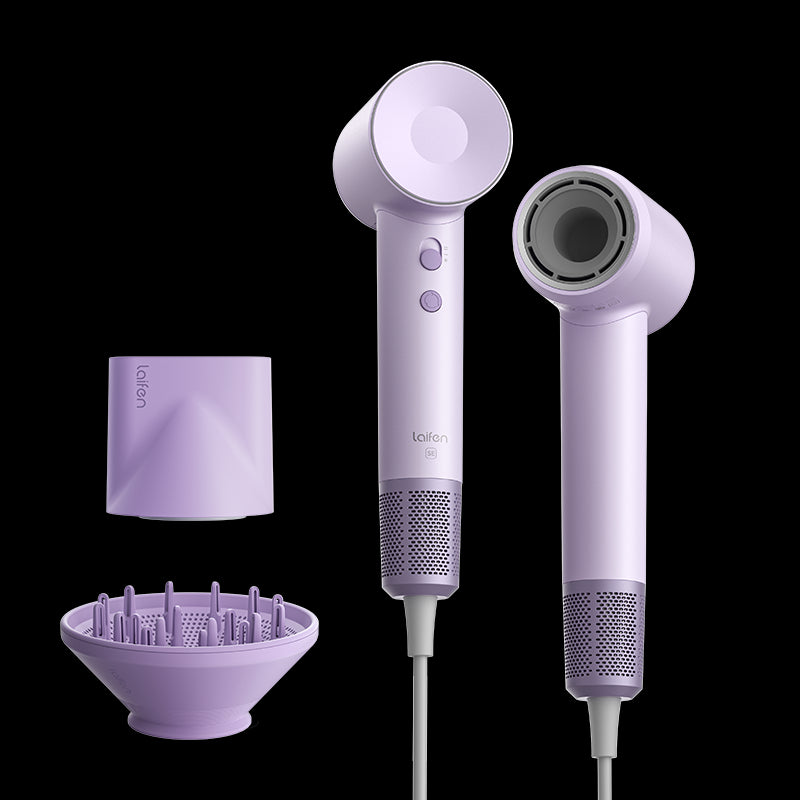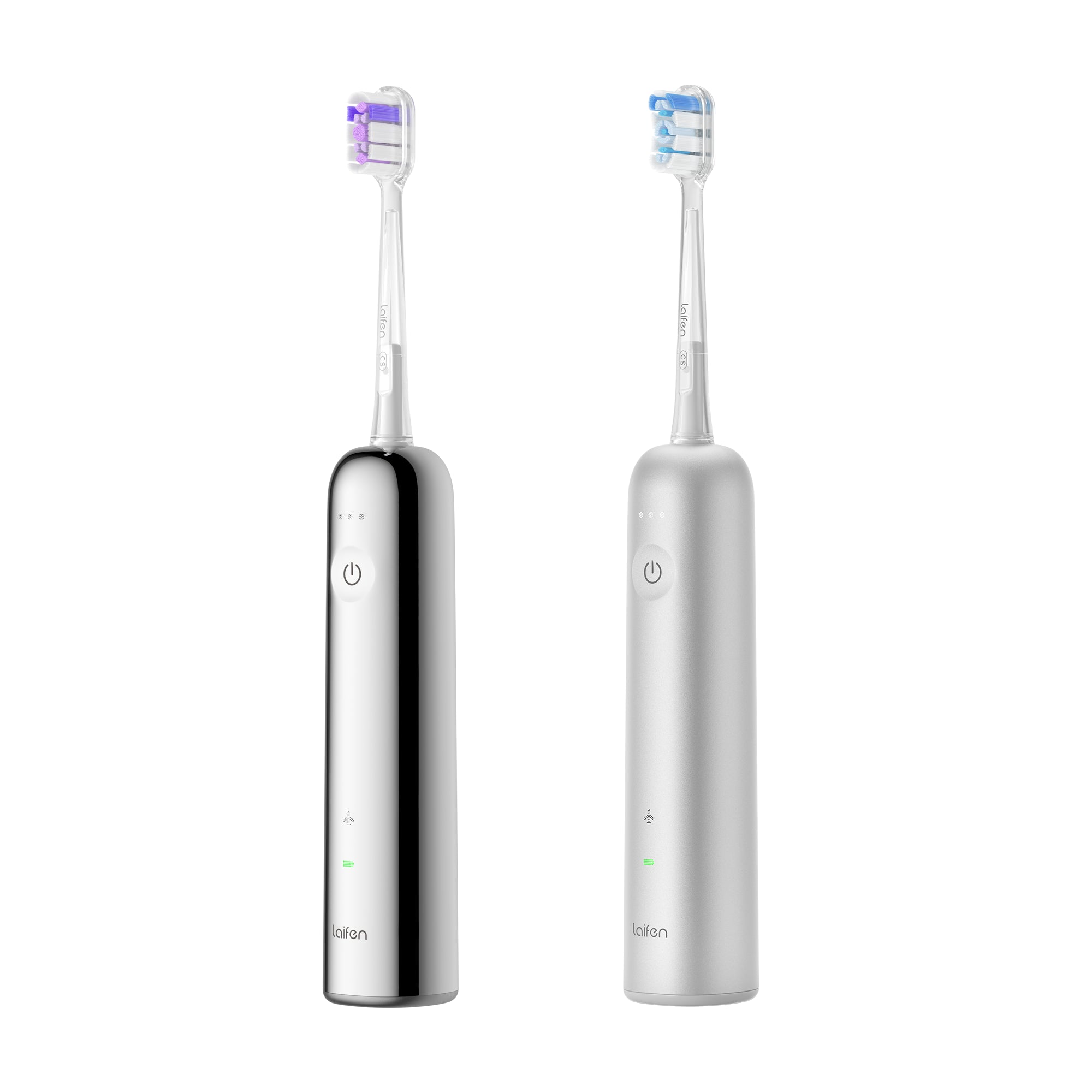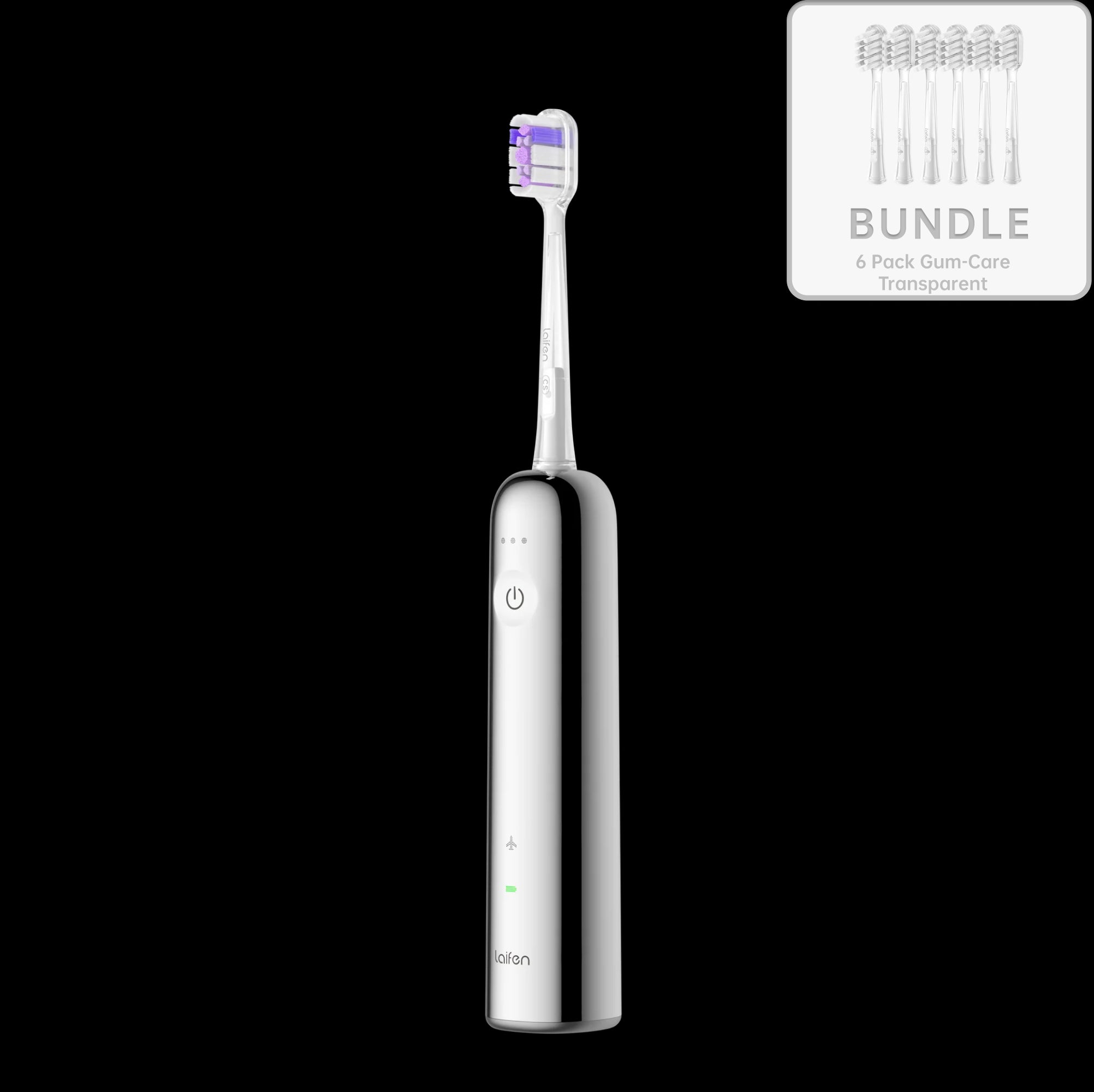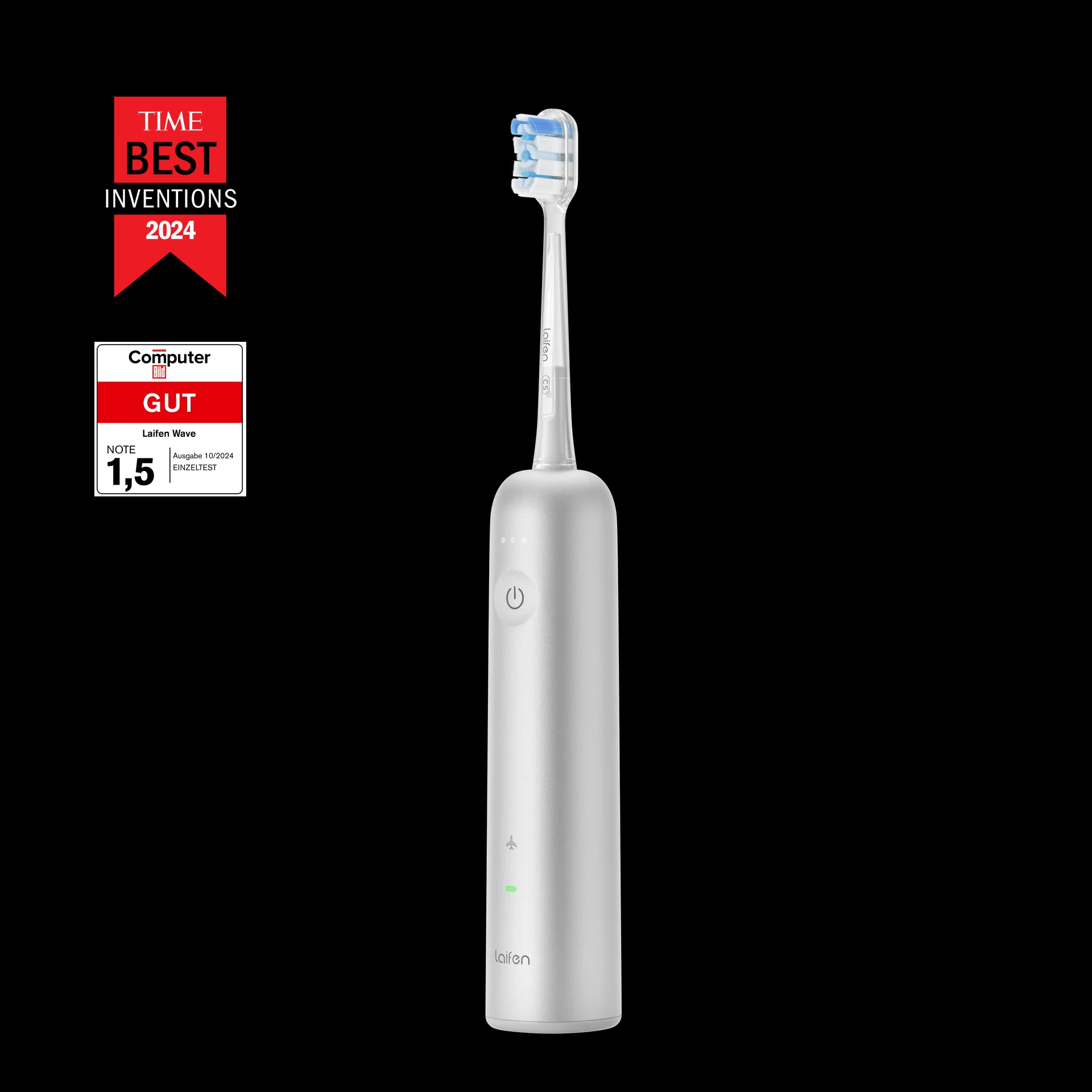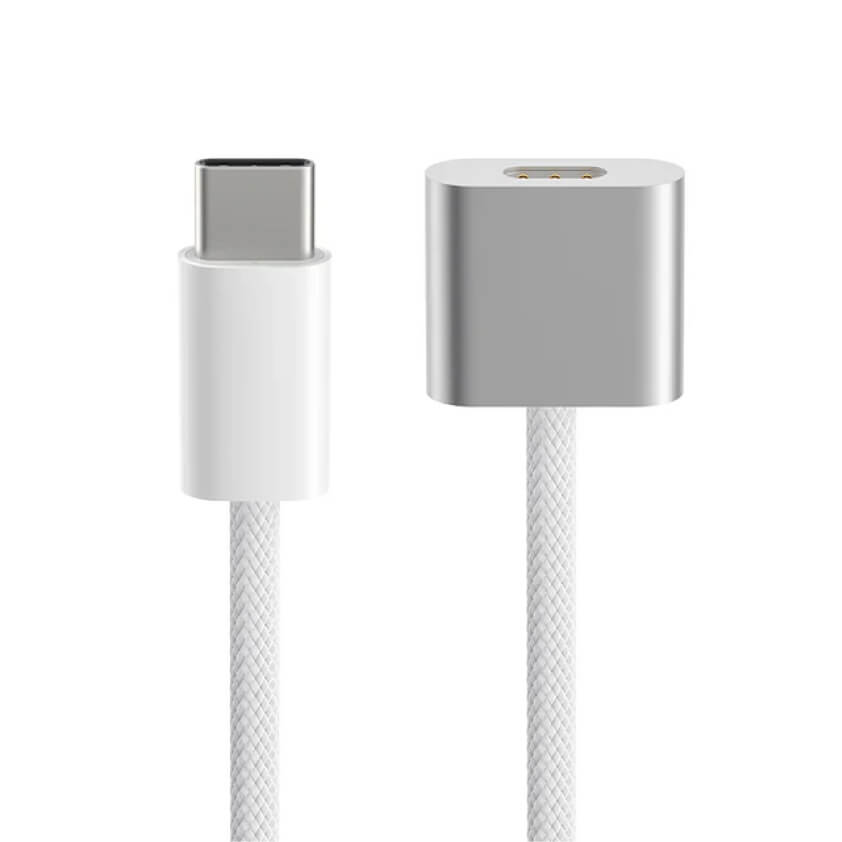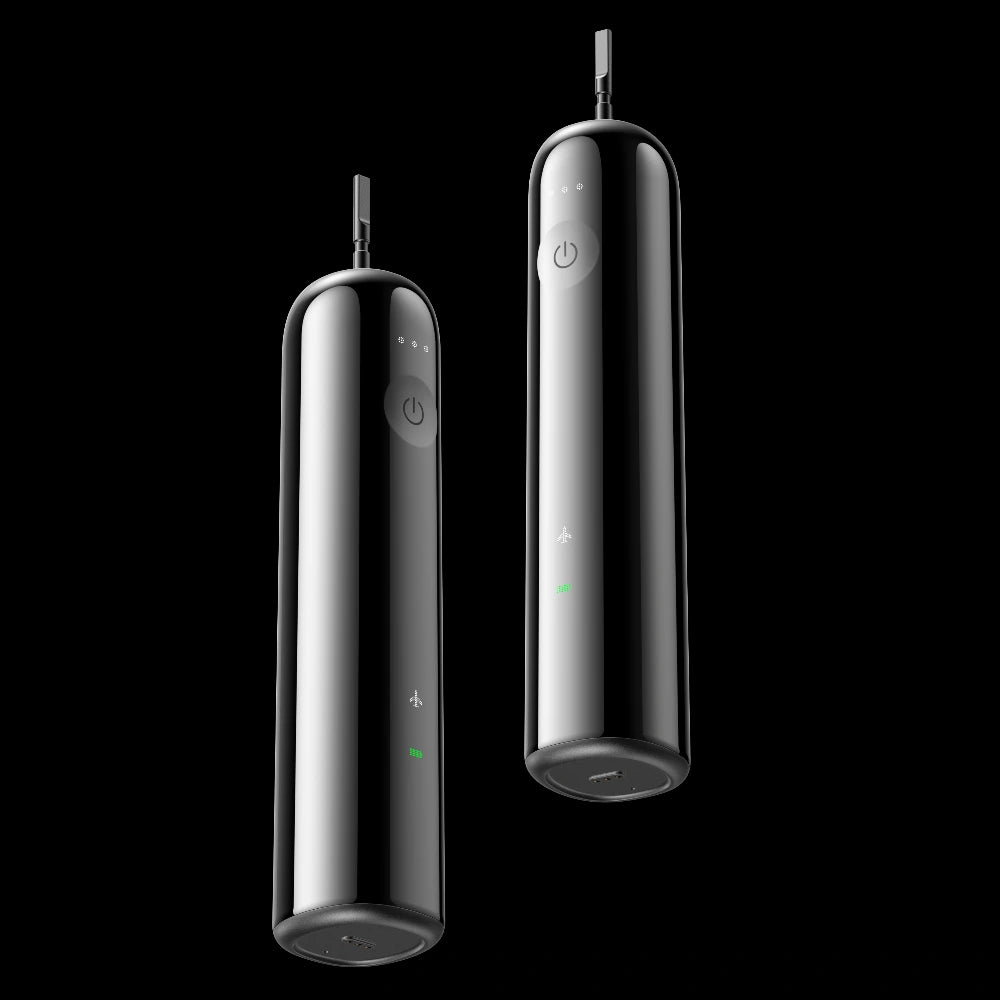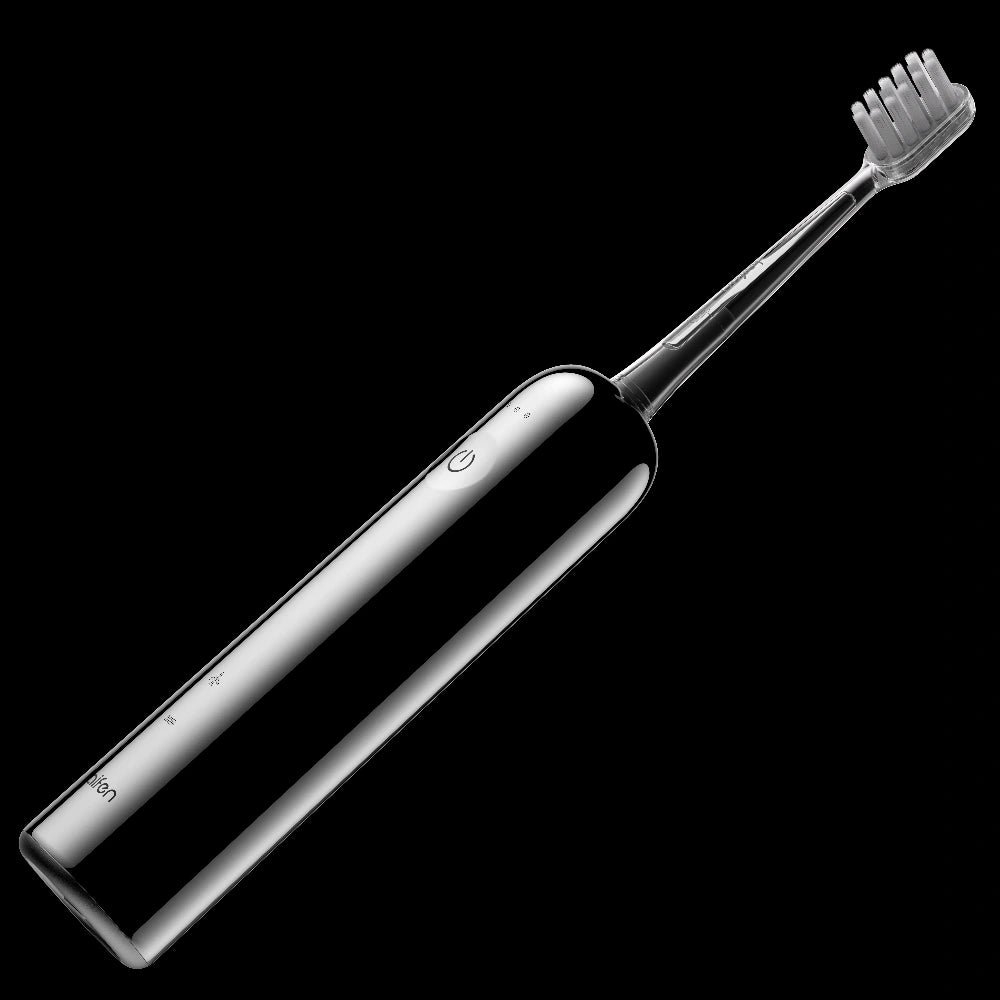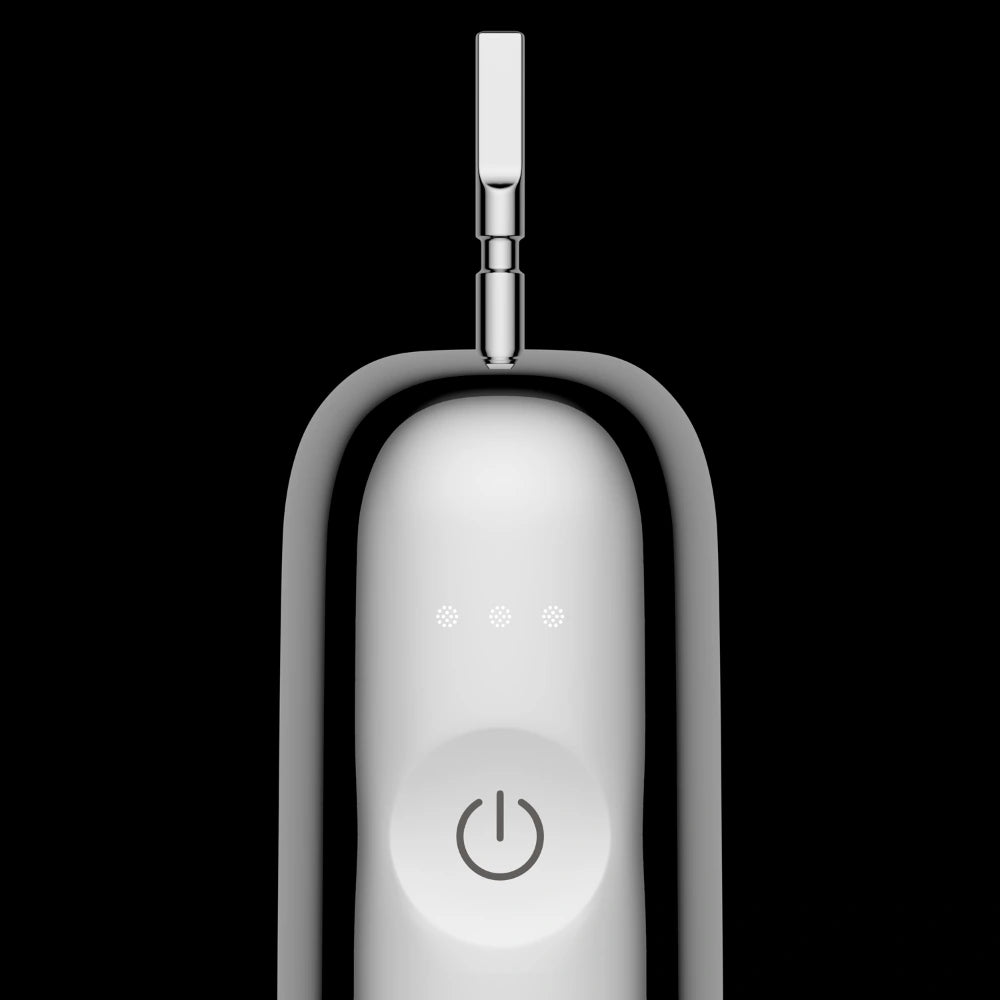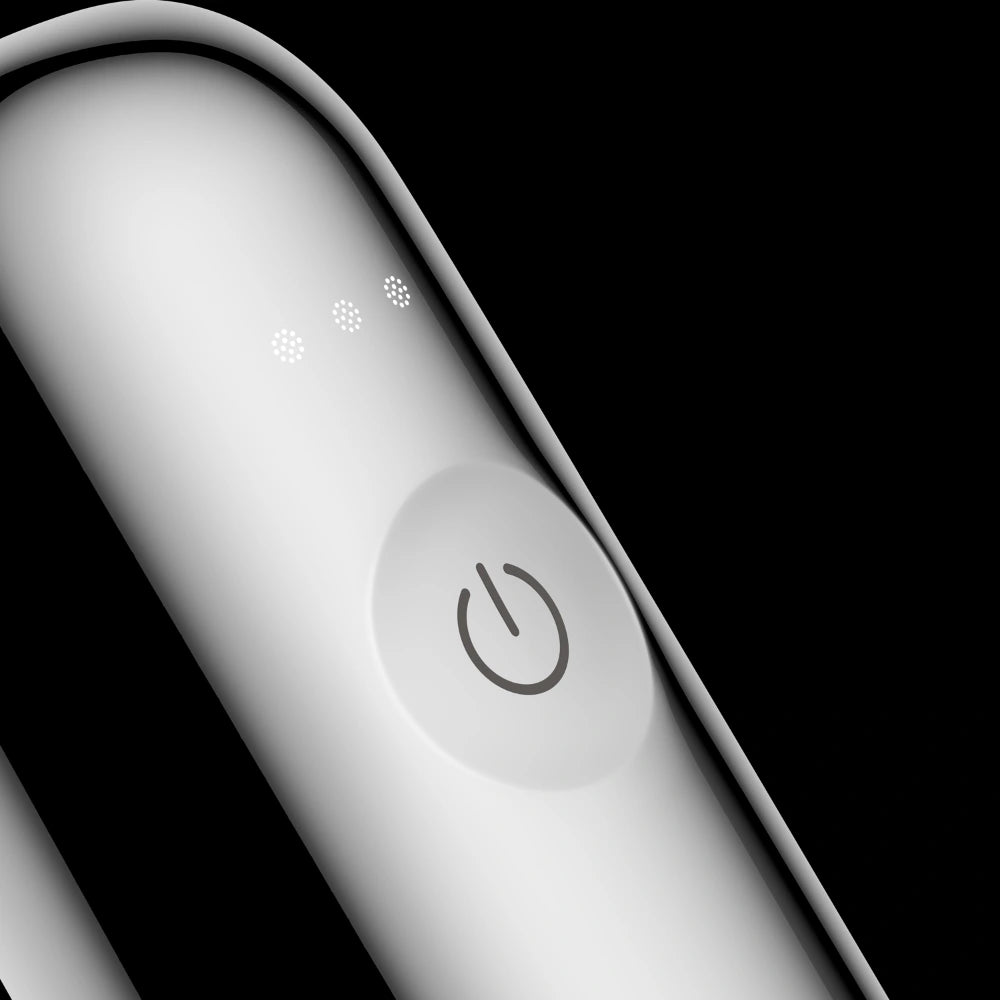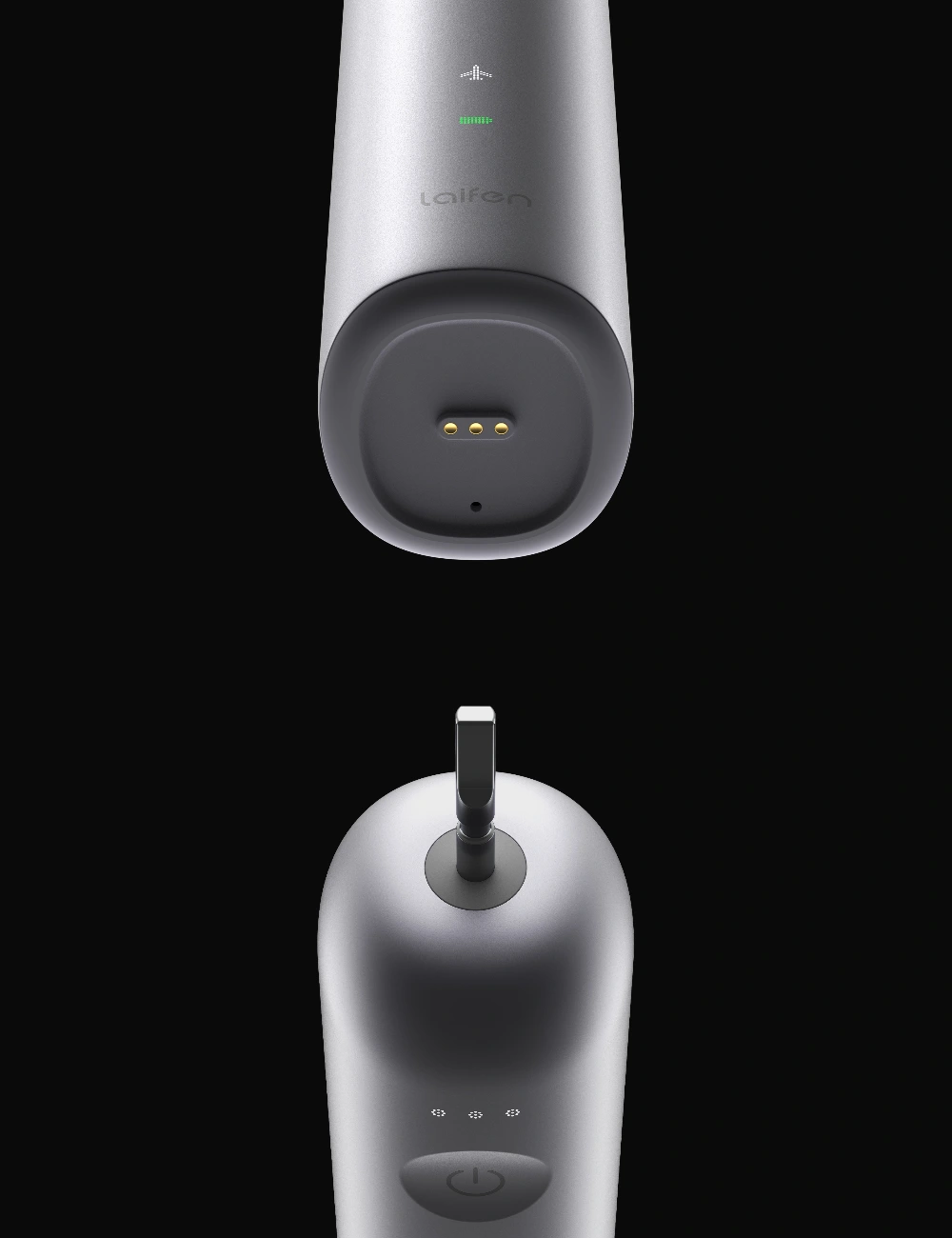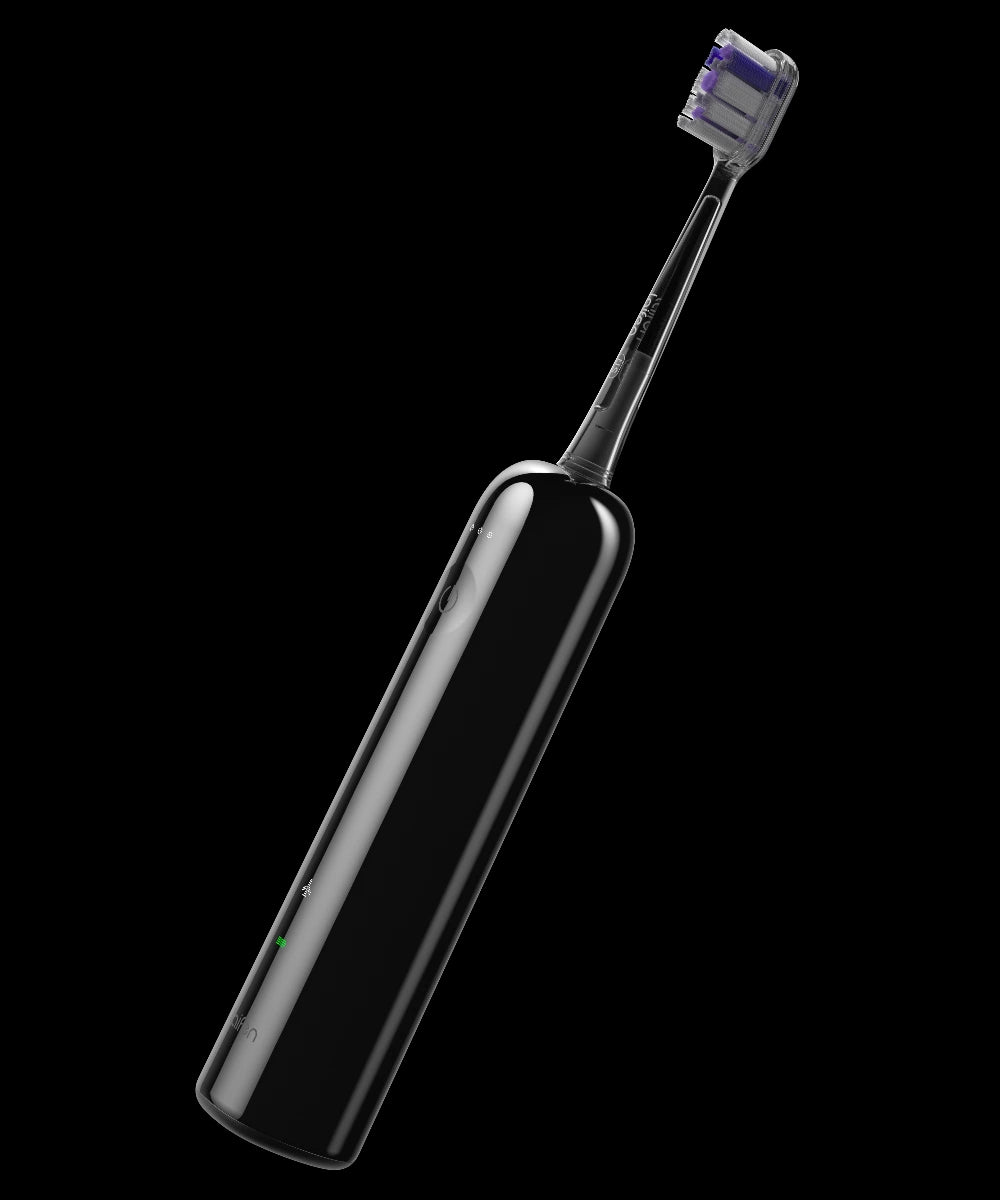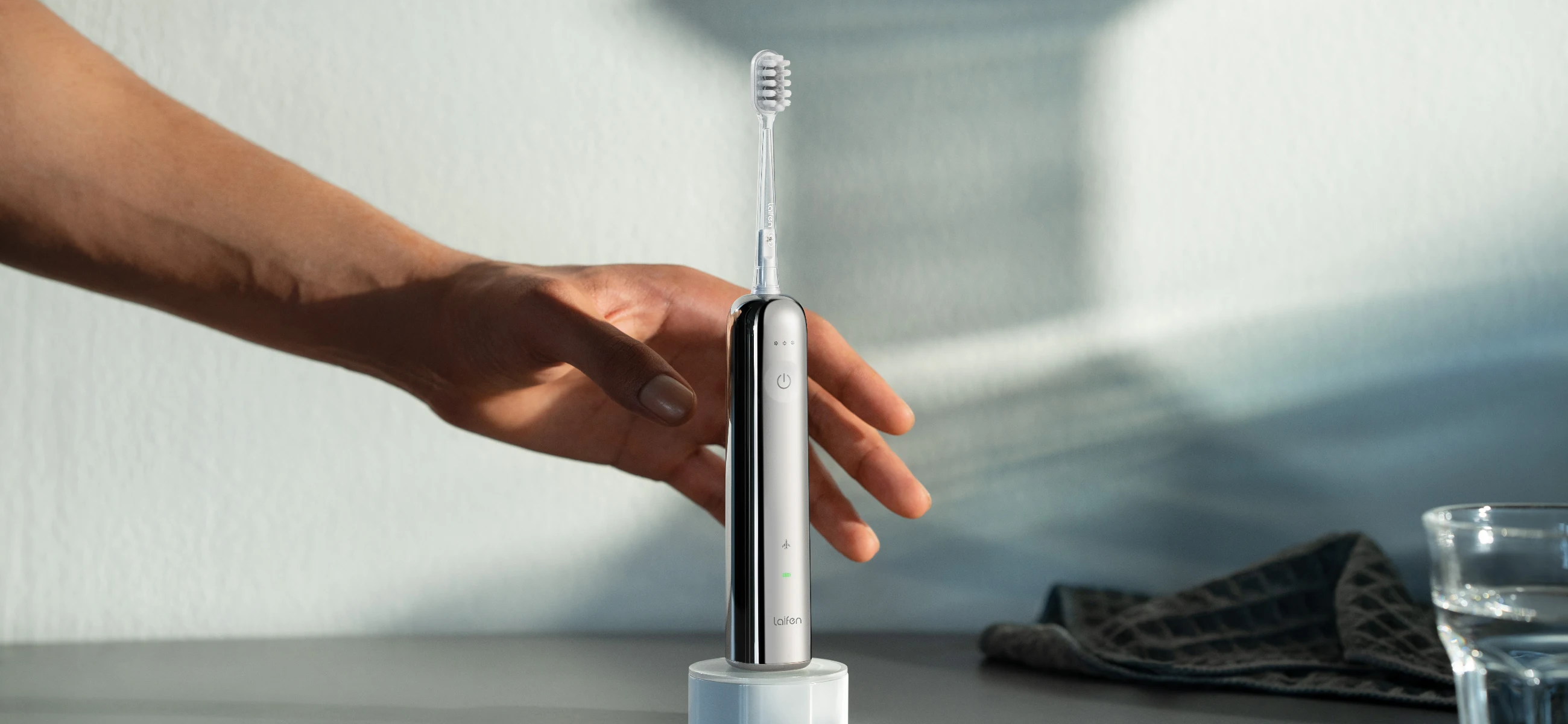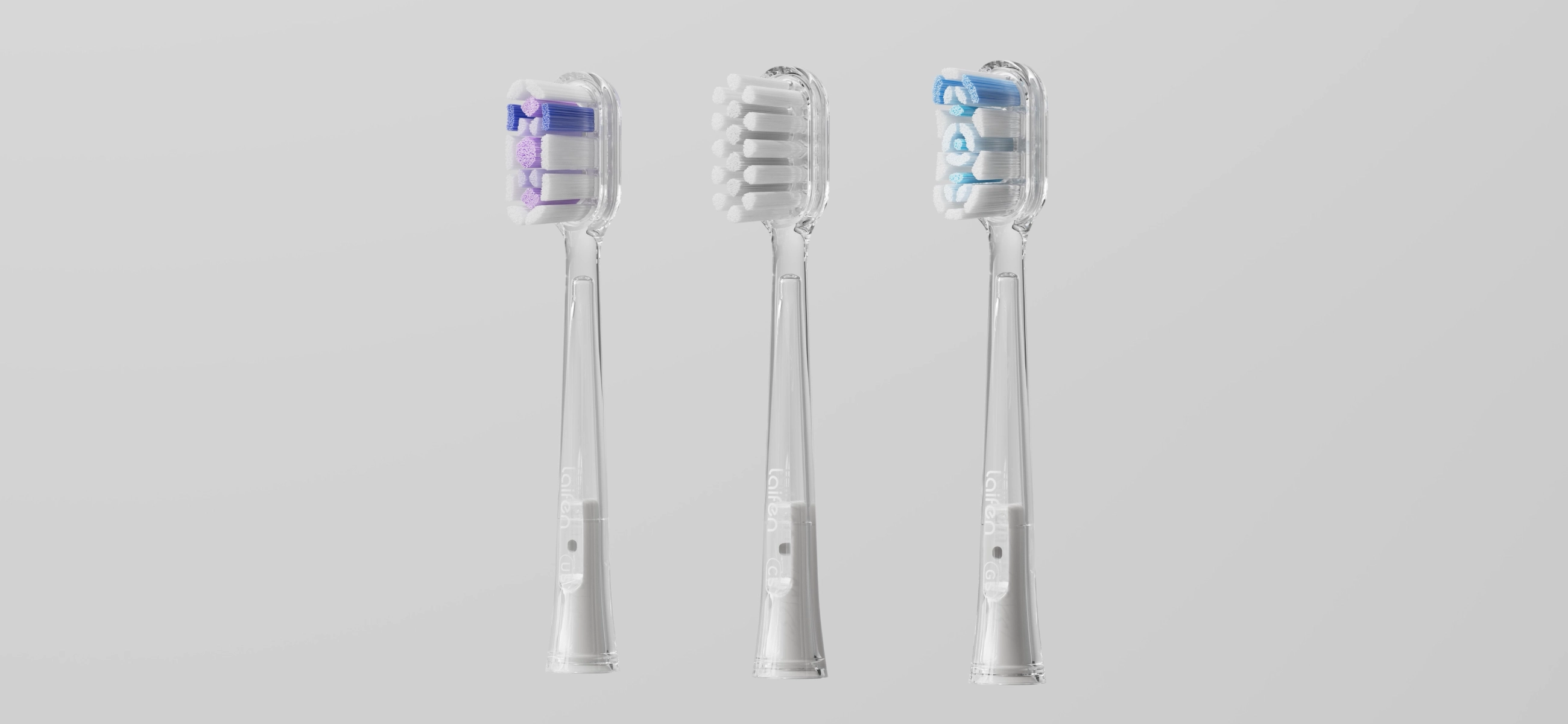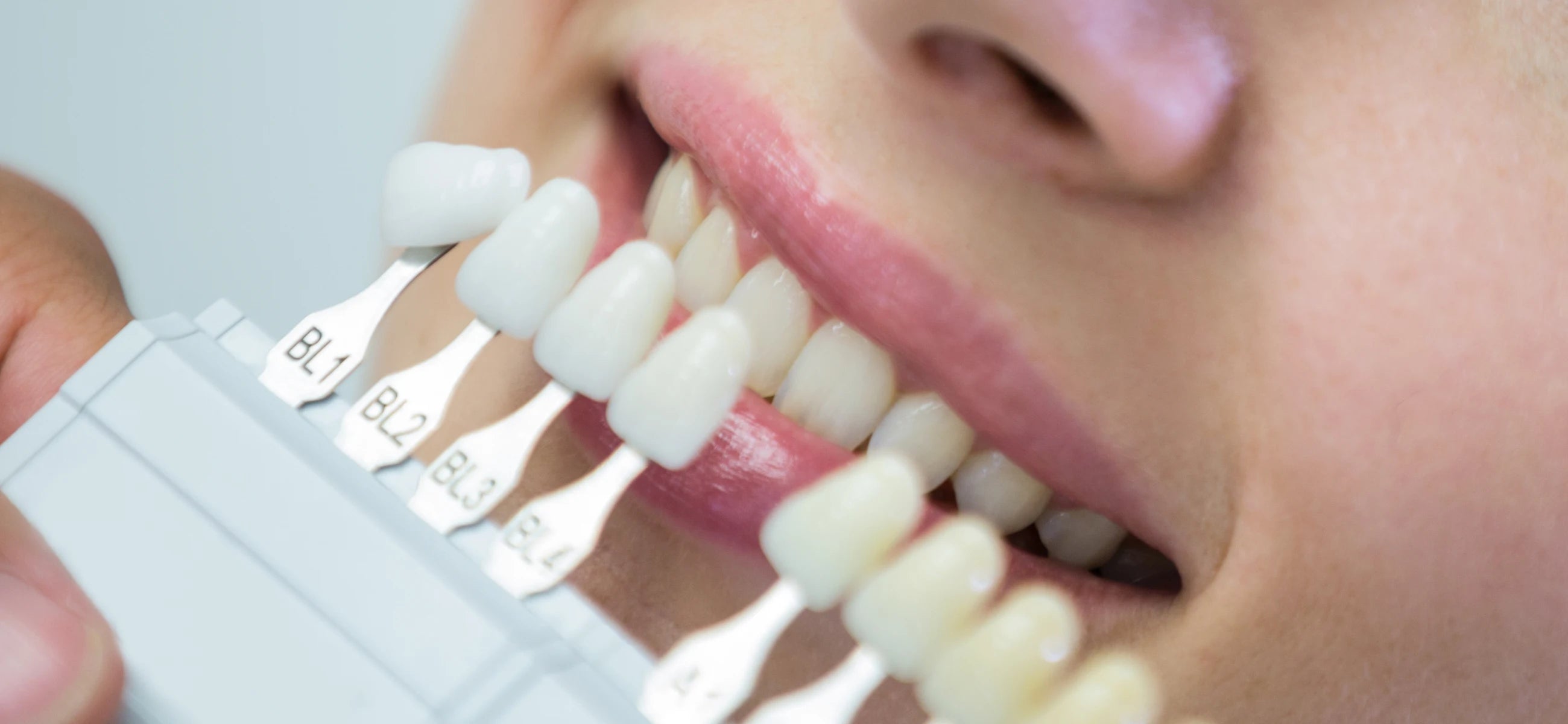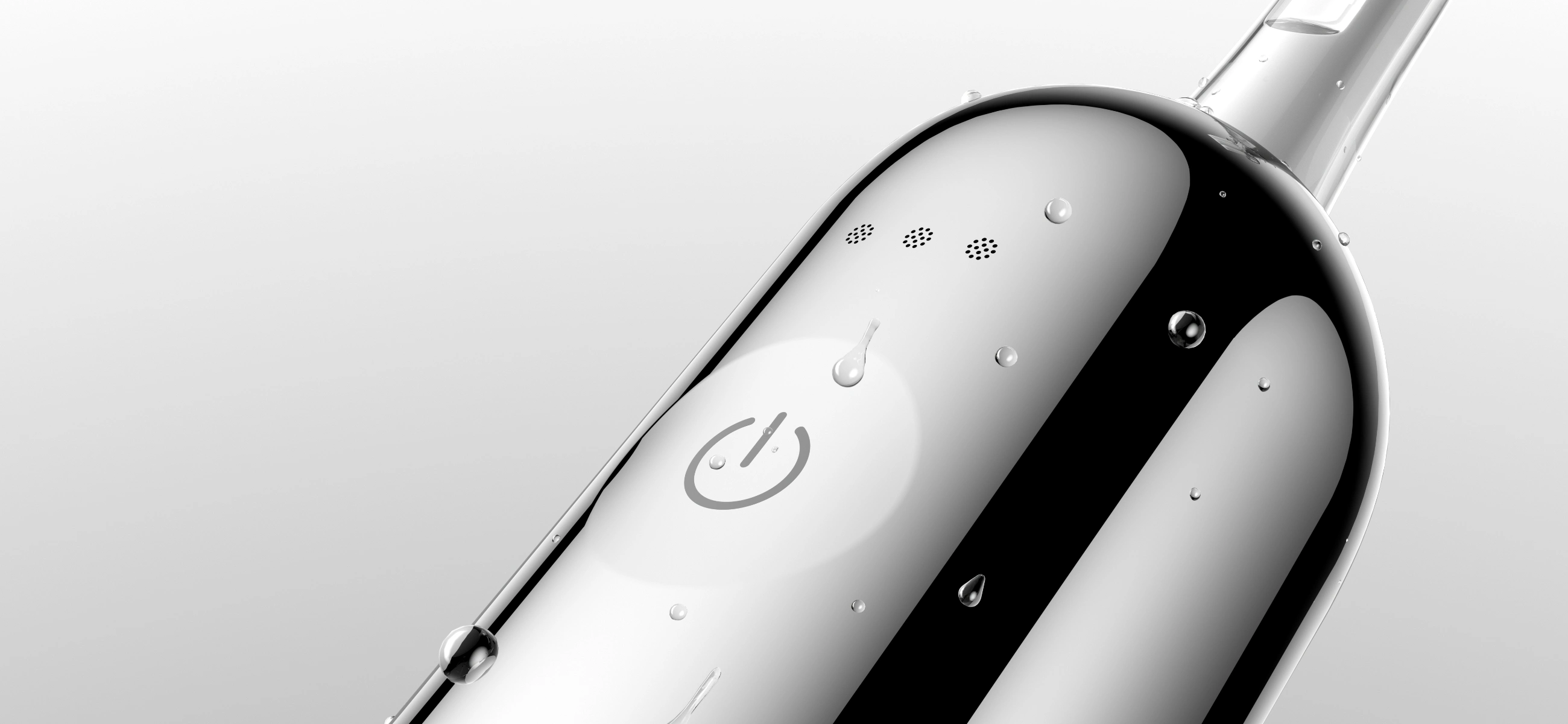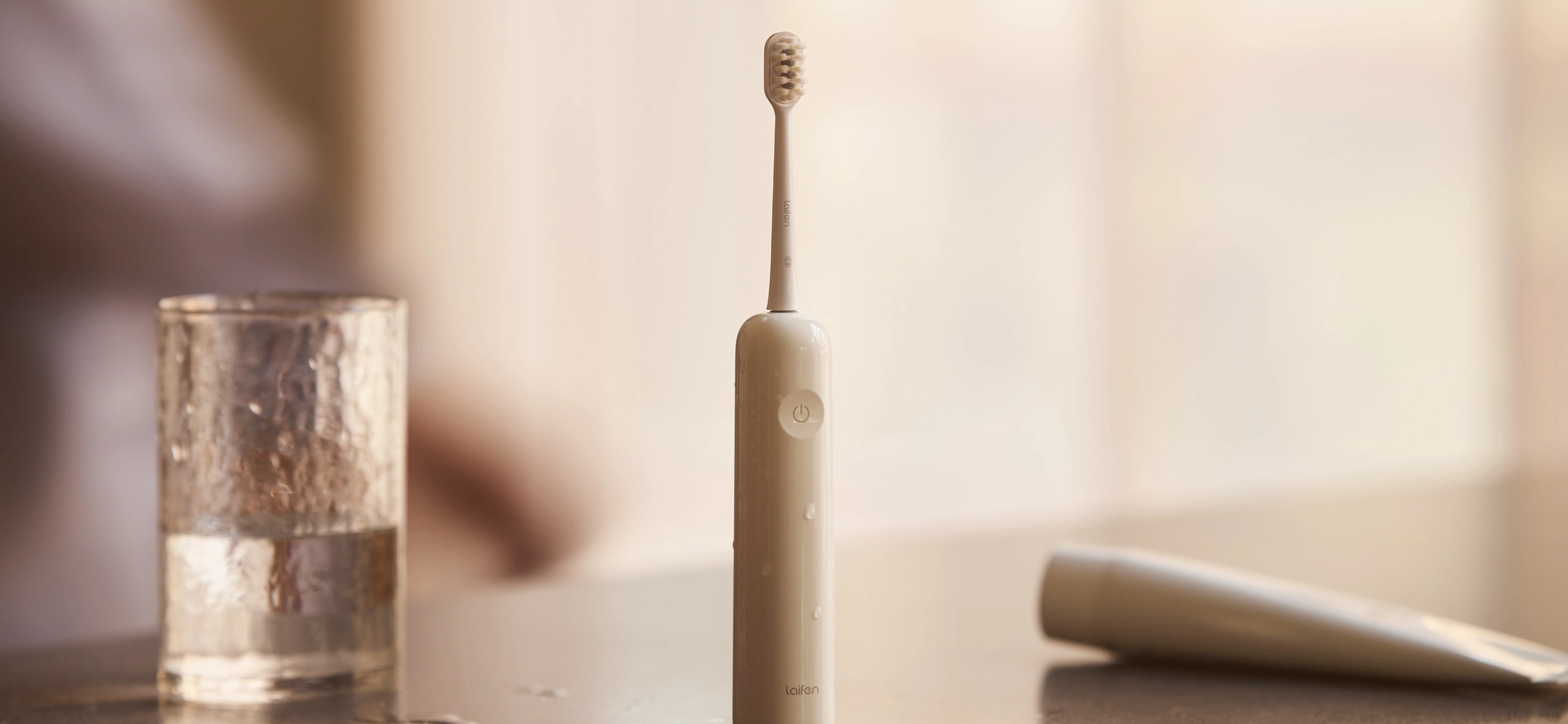
In this article
Toothbrushes and toothpaste are an essential part of daily oral hygiene. Mostly you find them in the wall mounted toothbrush and toothpaste holder in your bathroom. Dental professionals recommend cleaning your teeth at least twice a day, morning, and evening, for around three minutes each time. It is also ideal to brush your teeth again in between, for example at lunchtime. By taking good care of your teeth, you can effectively prevent tooth decay and gum disease. Daily oral hygiene can help to maintain a carefree smile into old age.
Optimal dental care depends on both the correct brushing technique and the choice of utensils to achieve the best results. Toothbrushes are now available in various technical designs. There is an even larger selection of toothpastes that promise different effects - such as a whitening effect thanks to activated charcoal. There are also numerous complementary products, such as dental floss or mouthwashes. We will show you what to look out for in the individual aids.
Suitable toothbrushes for daily care
A toothbrush is part of the basic equipment in every bathroom. It should also be in your toothbrush and toothpaste travel case when travelling. It accompanies us at the start of the day and just before going to bed. Toothpaste and toothbrushes are substitute goods which you have to take care of it also in terms of storage. There are special toothbrush and toothpaste holders where you can keep your toothpaste and toothbrush safe.
A toothbrush should always have as small a brush head as possible so that even hard-to-reach areas can be cleaned well. To protect tooth enamel and gums, the nylon bristles should be rounded. In this way, oral hygiene can be carried out as gently as possible and without negative consequences. Daily brushing removes plaque from the tooth surfaces, which can otherwise harden into tartar. But not all toothbrushes are the same. From "analogue", to electric, to sonic technology, there is a wide variety available to you.
Normal manual toothbrushes can provide sufficient cleaning performance when used correctly. When brushing, it is generally important to brush from the gums in vertical movements, i.e., from red to white. Electric rotary toothbrushes with a round brush head have a better brushing performance and are easier to handle. This benefits people with motor impairments, for example. Sonic toothbrushes, on the other hand, promise significantly more efficiency. They generate vibrations at a much higher frequency than conventional rotary toothbrushes. This results in a hydrodynamic cleaning effect, which leads to the particularly reliable removal of plaque.
Take care of your teeth: Use a toothbrush with the right toothpaste
The right toothpaste is the ideal complement to daily oral hygiene with a toothbrush. One of the main components of toothpaste is cleaning agents, which additionally support the mechanical cleaning of the toothbrush. Other ingredients promise to prevent tooth decay or gum inflammation such as periodontitis. They are also designed to whiten your teeth and create fresh breath.
Fluoride is a decisive factor in toothpaste. This supports the remineralization and hardening of tooth enamel. When caring for children's teeth, special children's toothpaste with a lower fluoride content should be preferred. From the age of six, children can use the same products as adults.
It is better to avoid whitening toothpaste or do not use it regularly. The abrasive particles they contain can have a highly abrasive effect and cause lasting damage to the tooth enamel. For reliable and gentle removal of tooth discoloration, contact your dentist and have your teeth professionally cleaned.
In addition to independent oral hygiene, you can also use dental floss, interdental brushes, mouthwash, and mouthwashes. However, these aids cannot replace brushing with a brush and toothpaste.
Toothbrush and toothpaste when traveling
Even when traveling, you can't do without a toothbrush and toothpaste. There are already special travel toothbrush and toothpaste, which are exclusively suitable for traveling. You can find a travel size toothbrush and toothpaste in any online shop or store near you.
Here are a few tips for your dental care when travelling:
-
Pack your toothbrush in a container to keep it clean for dental care while travelling and to protect it from getting dirty. Protective caps are available for manual toothbrushes, which also protect the bristles from damage. The brush heads from Demirdental are also equipped with a protective cover. Electric toothbrushes can be taken in the hand luggage. The rotating metal rod under the brush head is not categorized as a weapon. In addition, the battery is generally not powerful enough to be considered dangerous.
-
When travelling by air with hand luggage, it is advisable to buy a small tube of fluoride toothpaste, as toothpaste is classified as a liquid by the flight safety authorities. More than 100 milliliters are therefore not permitted. Toothpaste must also be transported in a transparent and sealable travel bag. Alternatively, you can buy toothpaste tablets.
-
Get yourself an antibacterial mouthwash for dental care when traveling. Mouthwash never replaces brushing your teeth at home but merely serves as a supplement. This also applies when traveling. However, on long flights, train, or bus journeys, when your ability to brush your teeth is limited, mouthwash can help to reduce germs and ensure fresh breath.
At last
Whether you're traveling or at home, it's always important to have the right toothbrush and toothpaste. It is also important to always consider how best to store them. Hygiene should always take center stage.
FAQ
Q1. How much does a toothbrush and toothpaste weigh in pounds?
The average weight of a toothpaste is 0,95 pounds, the weight of a toothbrush is around 0,35 pounds.
Q2. How to brush your teeth without toothpaste and toothbrush?
Rinse your mouth with tea or simply drink it. Fruit and vegetables with a good abrasive effect, such as apples, carrots, and celery, are also very good for brushing your teeth without a brush. As you can see, there are no reasons to give up important dental care, no matter what circumstances make it difficult for you.
Q3. Where to get free toothbrushes and toothpaste?
With a bit of luck, you can get a free toothpaste or toothbrush in online shops or in local shops with special offers or on the airplane when traveling. Some short-term rentals and hotels also offer a complimentary toothbrush and toothpaste. If you are looking for a free electric toothbrush, you can also check out the Laifen website, where you can always get a free toothbrush with special offers.


